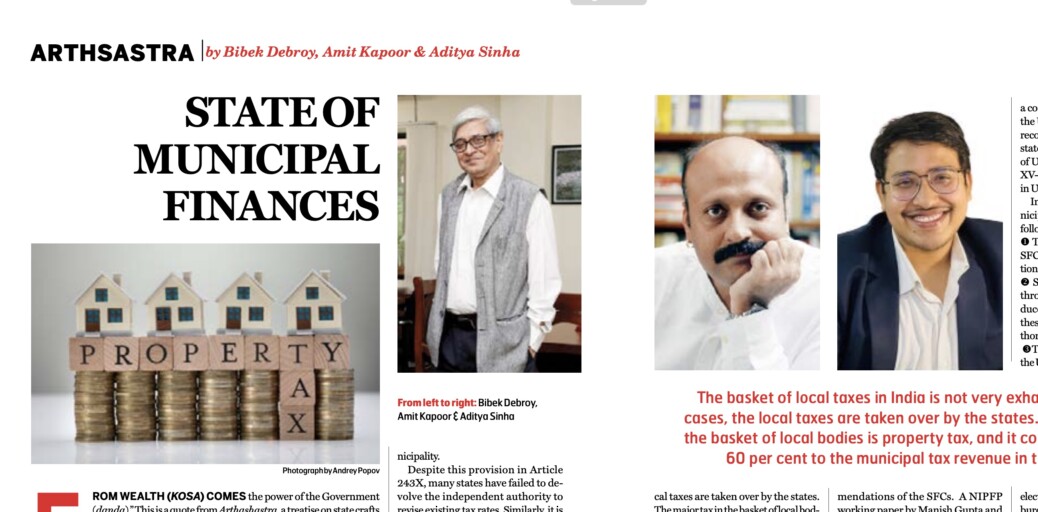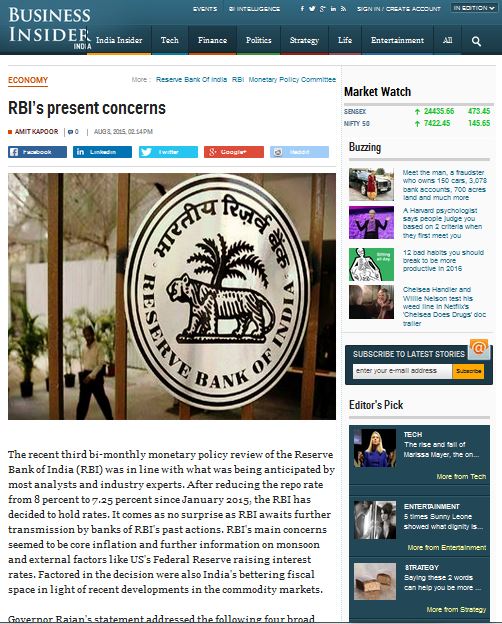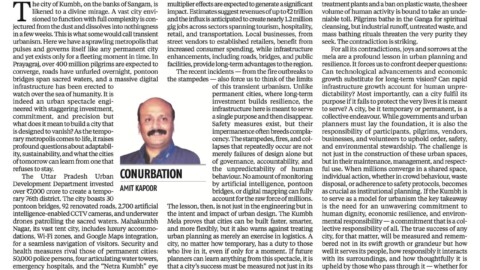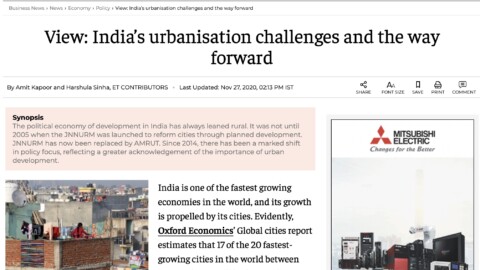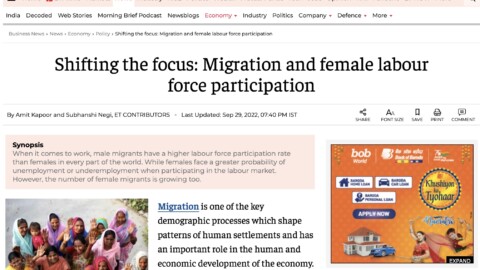State of Municipal Finances
Amit Kapoor, Bibek Debroy & Aditya Sinha
“From wealth (kosa) comes the power of the Government (danda).” This is a quote from Arthashastra, a treatise on state crafts by Kautilya, written sometime in 300 B.C. Collecting taxes, fees, and penalties is a fundamental way in which any level of government can generate revenue for making investments for creating basic provisions for the citizens. This is true for the Urban Local Bodies (ULBs) too. As per the 12th schedule of the Indian constitution, urban local bodies are supposed to deal with 18 municipal functions. However, as per Praja’s Urban Governance Index 2020, no state has been able to devolve all 18 municipal functions to the Urban Local Bodies. One reason for this is the non-availability of adequate financial resources with the ULBs to deal with all 18 municipal functions. But why is it so?
The 74th constitutional amendment empowers the state legislatures to impose taxes which aid the municipality’s finances. Thus, constitutionally, it is the responsibility of the state governments to create avenues for ULBs to raise resources. Article 243X of the constitution has recommended the state governments transfer powers to the ULBs for imposing taxes by and funds of the municipalities. This includes (a) Taxes, duties, fees, etc., which could be levied and collected by the Municipalities, as per the procedure to be laid down in the State law. (b) Taxes, duties, fees, etc., which would be levied and collected by the State Government and a share passed on to the Municipalities. (c) Grant-in-aid that would be given to the Municipalities from the State. (d) Constitution of funds for crediting and withdrawal of money by the Municipality.
Despite this provision in Article 243X, many states have failed to devolve the independent authority to revise existing tax rates. Similarly, it is difficult for the ULBs to introduce new taxes/ charges. Praja’s Fiscal Empowerment of City Governments found that “3 out of the 14 cities (Pune, Bhubaneswar and Cuttack) do not have independent authority to introduce new taxes from the assigned list of taxes according to the respective Municipal Acts”. As far as financial transparency is concerned, only two cities (Mumbai and Coimbatore) out of the 14 cities in the study publish the outcome/performance budget.
A study of State of Municipal Finances in India by ICRIER, prepared for the 15th Finance Commission, found that Municipal own revenue as a per cent of GDP rose between 2010-11 & 2012-13 but thereafter, it declined. The basket of local taxes in India is not very exhaustive. In most cases, the local taxes are taken over by the states. The major tax in the basket of local bodies is property tax, and it contributes around 60% to the municipal tax revenue in the country. No wonder the “own taxes and user charges of the ULBs in India are grossly inadequate to meet the expenditure need of ULBs”.
Technically, the State Finance Commissions are supposed to recommend the distribution of net proceeds of taxes and duties between the state and the local governments. SFCs are supposed to be constituted after every five years. But there are two issues. (1) A lot of state governments do not set up SFCs regularly. As per the XV Finance Commission of India’s report, only 15 states have set up the fifth or the sixth SFC. Some states have not even beyond the 2nd and 3rd SFC. (2) Even if the states reconstitute the SFCs, they do not accept the recommendations of the SFCs. A NIPFP working paper by Manish Gupta and Pinaki Chakraborty found that states do not promptly act on the recommendation of the SFCs.
The union-level Finance Commissions are supposed to be concerned with union-state fiscal relations. However, Eleventh Finance Commission onwards, the Terms of Reference (ToR) of the Union Finance Commission have a specific item requiring them to “make recommendations to augment the consolidated funds of the states to supplement the resources of local bodies”. The 11th FC awarded INR 400 crores for municipalities. The XV Finance Commission, in its final report, recommended a total amount of INR 1,21,055 Crores to local bodies for the period 2021-22 to 2025-26. But one should ask if the state governments fail to set up SFCs, which is a constitutional requirement, should union-level finance commission recommend grants for ULBs. Clearly, states are responsible for the finances of ULBs. Reform-linked grants (as in XV-FC) can nudge states to invest more in ULBs. But states should do more.
In order to improve the state of municipal finances, states should do the following: (1) The states should regularly set up SFCs and accept their recommendations timely. (2) State should empower ULBs through state municipal acts to introduce new taxes/fees/penalties, tweak these taxes and have independent authority to approve their own budget. (3) The pre-requisite for empowering the ULBs with such powers requires the elected representatives and permanent bureaucracy to be trained regularly to deal with financial matters of this magnitude. (4) States should eventually allow ULBs to deal with all 18 municipal functions.
For India’s economic growth story, it is important for our cities to have basic infrastructure which can provide a robust foundation for unleashing the economic potential in our vibrant cities. This cannot happen in the absence of empowered ULBs. Empowerment cannot come without Kosa. And the absence of Kosa makes governance difficult. If not to the union-level Finance Commission, states should at least pay heed to the advice of Kautilya.
The article was published with Business World.
